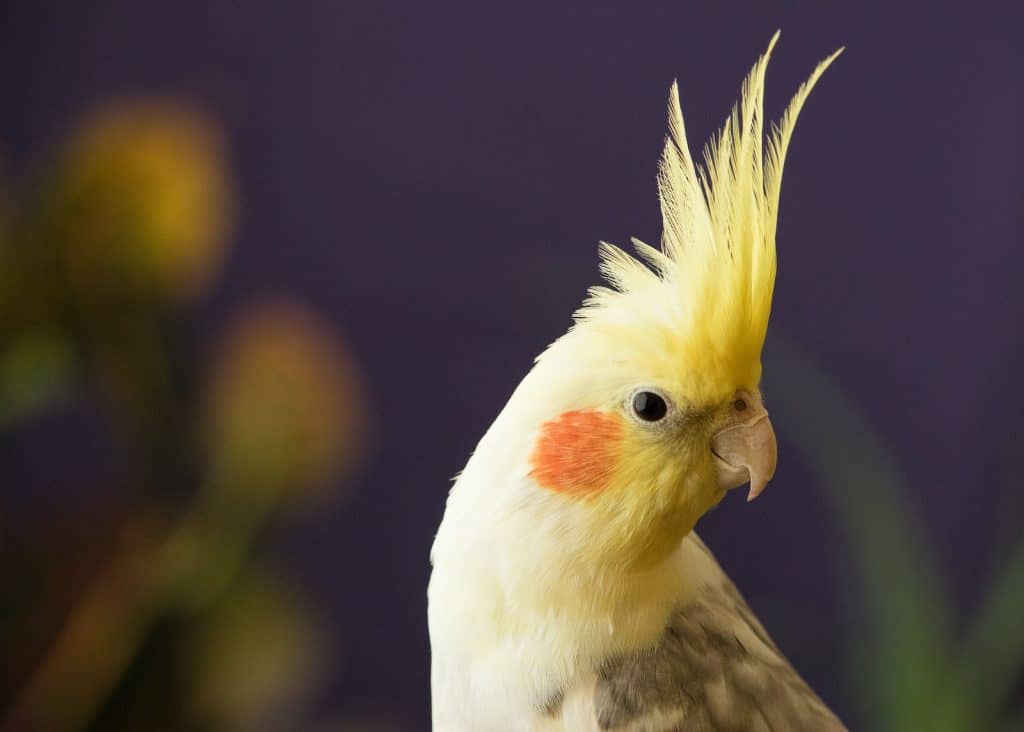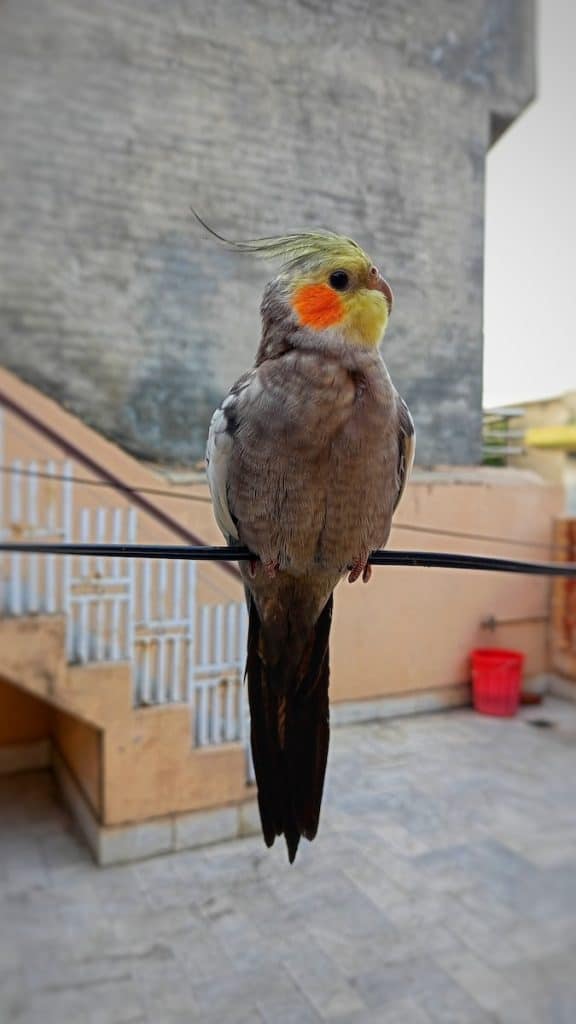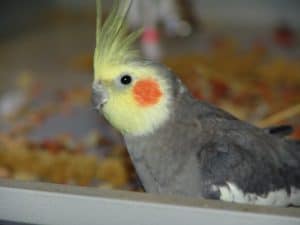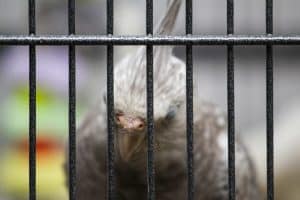Why is my cockatiel chirping so much? Both male cockatiels and female cockatiels that have been socialized to humans make for small, vocal, and friendly companion birds. In fact, they are the most popular pet bird in the world – second only to budgerigars.
That said, not everyone loves Cockatiel melodies trilling throughout their home all day long. If this describes you and you’re considering getting a cockatiel as your next pet, it may be wiser to choose a quieter animal instead. Why is my cockatiel chirping so much?
Why Is My Cockatiel Chirping So Much?
Why is my cockatiel chirping so much? The chirping of a cockatiel is typical and natural. It’s generally considered to be a good or neutral sound. Other cockatiel noises, such as screaming, shrieking, calling, and crying, have distinct meanings and needs associated with them.
So, to start, you want to determine if the sound your cockatiel is making is actually a chirp. The following section will assist you in answering this question.
Cockatiel Sounds and Meanings
The more time you spend with your cockatiel, the easier it will be to tell which sounds mean what. For example, sometimes your bird may start chirping more than normal, as this thread from a popular cockatiel owner forum illustrates.

Why Is My Cockatiel Chirping So Much? What Does It Mean?
Cockatiels live in small family groups of several individuals in the wild. Cockatiels frequently dwell in much larger flocks of hundreds of birds during certain periods each year. Cockatiels chirp to talk, connect, send messages to other birds, and react to communications received in the wild.
Although chirping is usually seen as a good, happy, or neutral sound, this does not imply that your cockatiel’s chirping has no significance.
Although we will review the most popular cockatiel sounds and their potential meanings, it is essential to remember that these are merely interpretations. Until cockatiels learn to communicate with us in our language, we won’t be able to know for certain what they’re trying to say.
Calling cockatiel chirp
Cockatiels are known for their chirps, and the contact call chirp is one of the most common.
To an experienced set of ears, it sounds like a chirp with a question mark at the end.
But to someone inexperienced, it may sound like your bird is in distress. And in fact, it sort of is since the contact call is usually an attempt to find you or another missing mate or family member.
The contact call will most likely be directed at you if your cockatiel is an “only bird.” If you only hear the sound when you leave the room or move out of sight, this is the strongest indication that it’s a contact call chirp.
A cockatiel reaches sexual maturity around 9-12 months old. If it is seeking a mate, it will make contact calls frequently during Spring and Summer when the weather gets warmer and there are more daylight hours. Sometimes it is called cockatiel singing.
Danger call cockatiel chirp
Cockatiels live in packs where all members share the duty of keeping an eye out for potential dangers and predators. bMany cockatiel owners have heard their pet cockatiel give a harsh, shrill alarm before looking up to see a hawk diving around above them, a squirrel on the power lines, or their neighbor’s cat coming.
The danger-danger call is a chirp that usually goes away as soon as the visual proof of threat passes. It’s meant to warn you and any other birds in your home about danger so you can get to safety.
Distress call cockatiel chirp
Cockatiels, like other animals (both wild and domestic), will naturally attempt to conceal any symptoms of sickness, injury, or weakness. If something is causing your cockatiel agony actively, you may hear a loud and continuous string of shrieks that conveys severe and immediate anguish.
Don’t ignore your bird’s distress call chirps, as they may be stuck or trapped. Nighttime is especially risky for them, as nocturnal predators may attack. Although not common, you may also hear their distressed calls during a night fright episode.
Boredom screeching cockatiel chirp
Cockatiels are highly sociable as a species, and being alone with no one to talk to and nothing to do is extremely distressing. This is also an indicator of a prey animal, where all alone removes the comfort and protection of the flock. A bored or lonely cockatiel will scream and screech; you can bank on it. Unfortunately, this is frequently the most simple problem to remedy, and the single greatest cause of cockatiels being abused or abandoned.
Why Is My Cockatiel Chirping So Much? What To Do?
A chirping cockatiel may be quite happy and talkative. But more than likely, there exists a problem, and that is why your bird is chirping so much. The solution to this issue is to identify the trouble and correct it.
Why Is My Cockatiel Chirping So Much – Bottom Line
Why is my cockatiel chirping so much? Cockatiels are known for their chirping, and the contact call chirp is one of the most common. To an experienced set of ears, it sounds like a chirp with a question mark at the end. But to someone inexperienced, it may sound like your bird is in distress. And in fact, it sort of is since the contact call is usually an attempt to find you or another missing mate or family member.
The best way to figure out why your cockatiel is chirping so much is to try and identify the type of chirp. Once you know what kind of chirp it is, you’ll have a better idea of what your cockatiel is trying to communicate, and how to best address the issue.
For those looking to deepen their bond with their cockatiel, don’t miss out on these insightful articles. Learn the best techniques for getting your cockatiel to sit on your finger and understand the steps to tame a cockatiel that bites, ensuring a harmonious relationship with your feathered friend. Curious about their unique features? Discover why cockatiels have crests and what these crests indicate about their mood and health. Additionally, it’s important to be aware of potential health concerns, such as whether cockatiel dust is harmful to both birds and their owners. These articles provide valuable knowledge to enhance your experience as a cockatiel owner.



